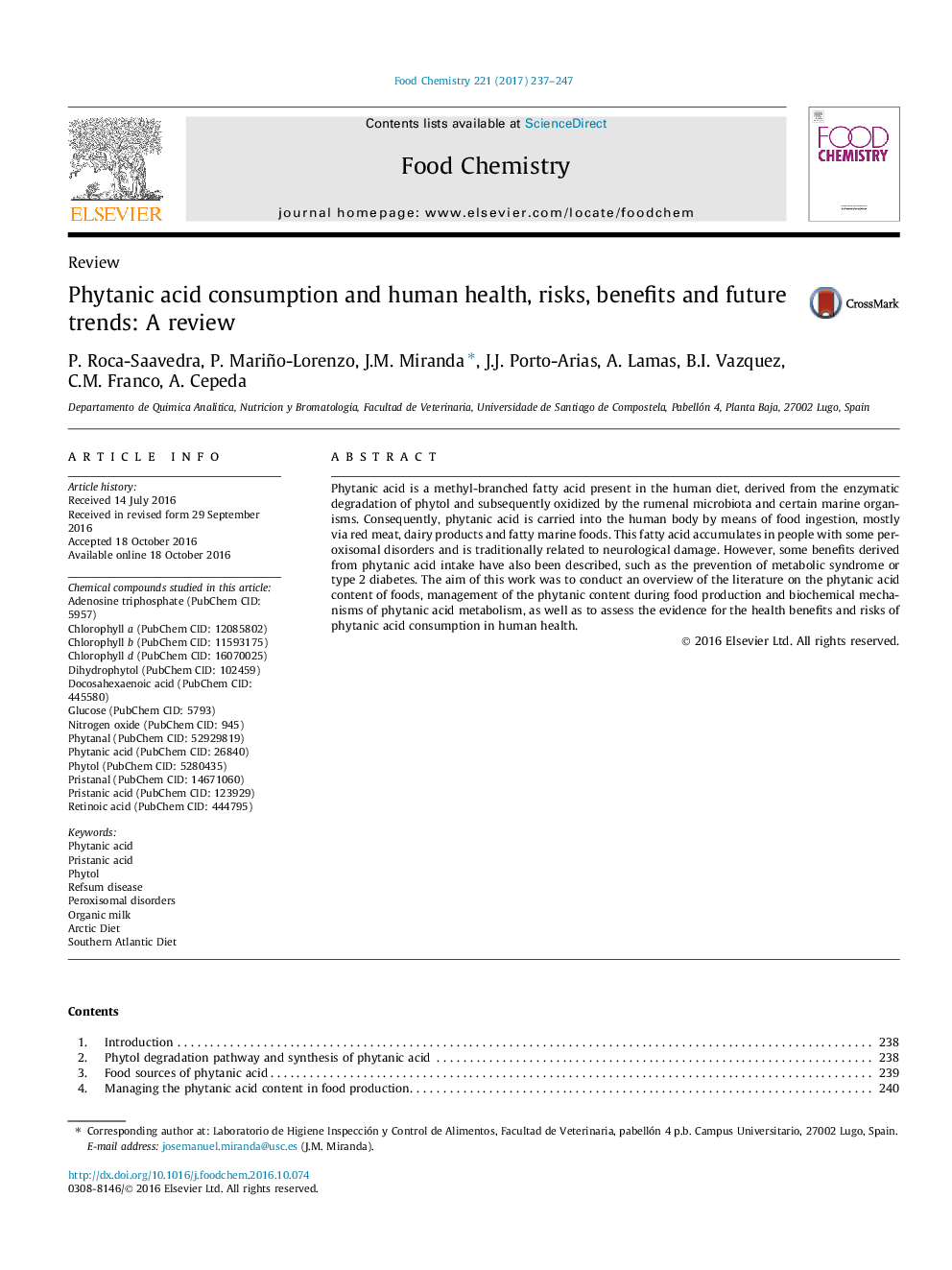| Article ID | Journal | Published Year | Pages | File Type |
|---|---|---|---|---|
| 5133705 | Food Chemistry | 2017 | 11 Pages |
â¢Phytanic acid is a methyl-branched fatty acid derived from phytol.â¢Phytanic acid is carried into the human body by means of red meat, dairy products and fatty marine foods.â¢Phytanic acid was recently proposed a fatty functional compound.â¢Both positive and negative effects on human health was reported for phytanic acid.
Phytanic acid is a methyl-branched fatty acid present in the human diet, derived from the enzymatic degradation of phytol and subsequently oxidized by the rumenal microbiota and certain marine organisms. Consequently, phytanic acid is carried into the human body by means of food ingestion, mostly via red meat, dairy products and fatty marine foods. This fatty acid accumulates in people with some peroxisomal disorders and is traditionally related to neurological damage. However, some benefits derived from phytanic acid intake have also been described, such as the prevention of metabolic syndrome or type 2 diabetes. The aim of this work was to conduct an overview of the literature on the phytanic acid content of foods, management of the phytanic content during food production and biochemical mechanisms of phytanic acid metabolism, as well as to assess the evidence for the health benefits and risks of phytanic acid consumption in human health.
